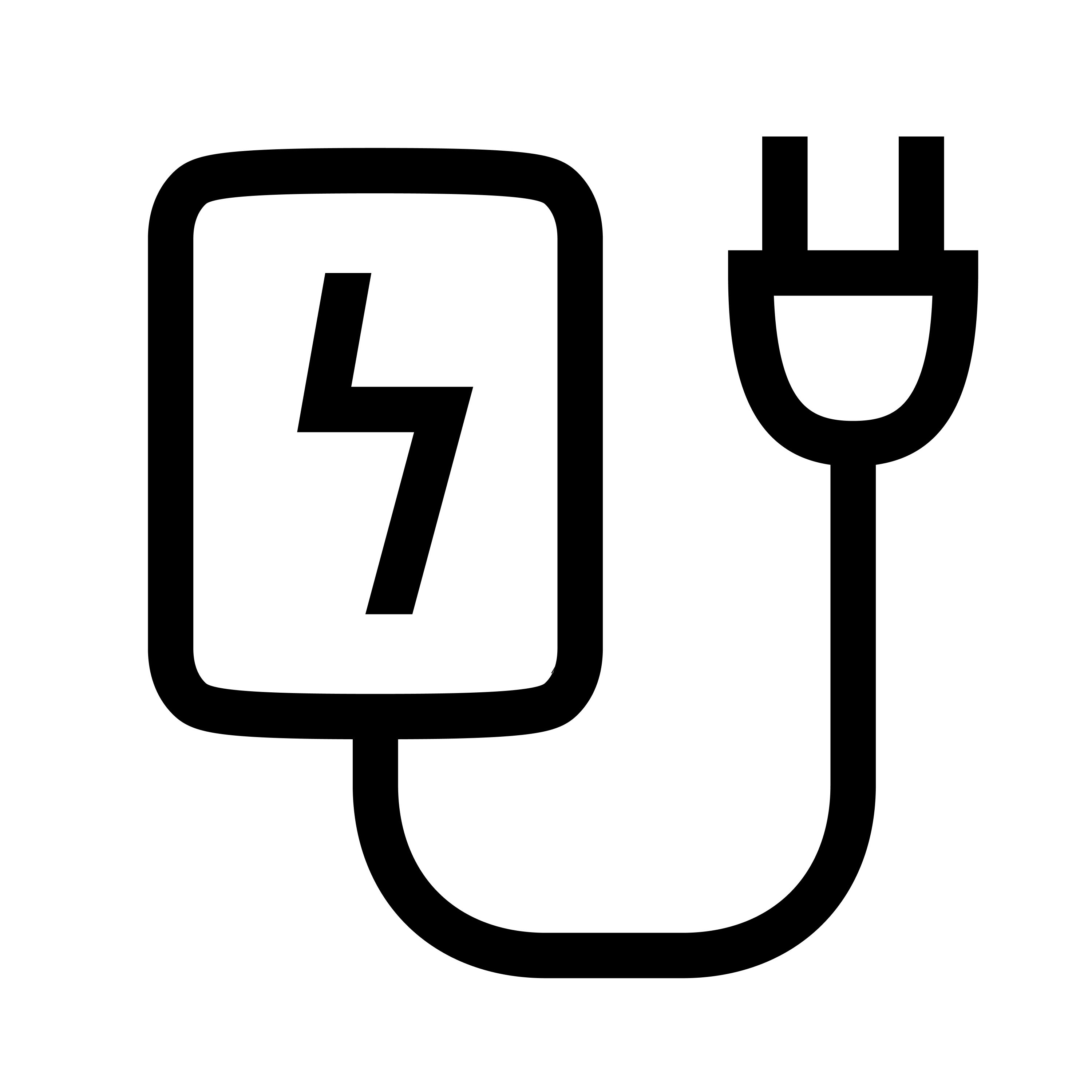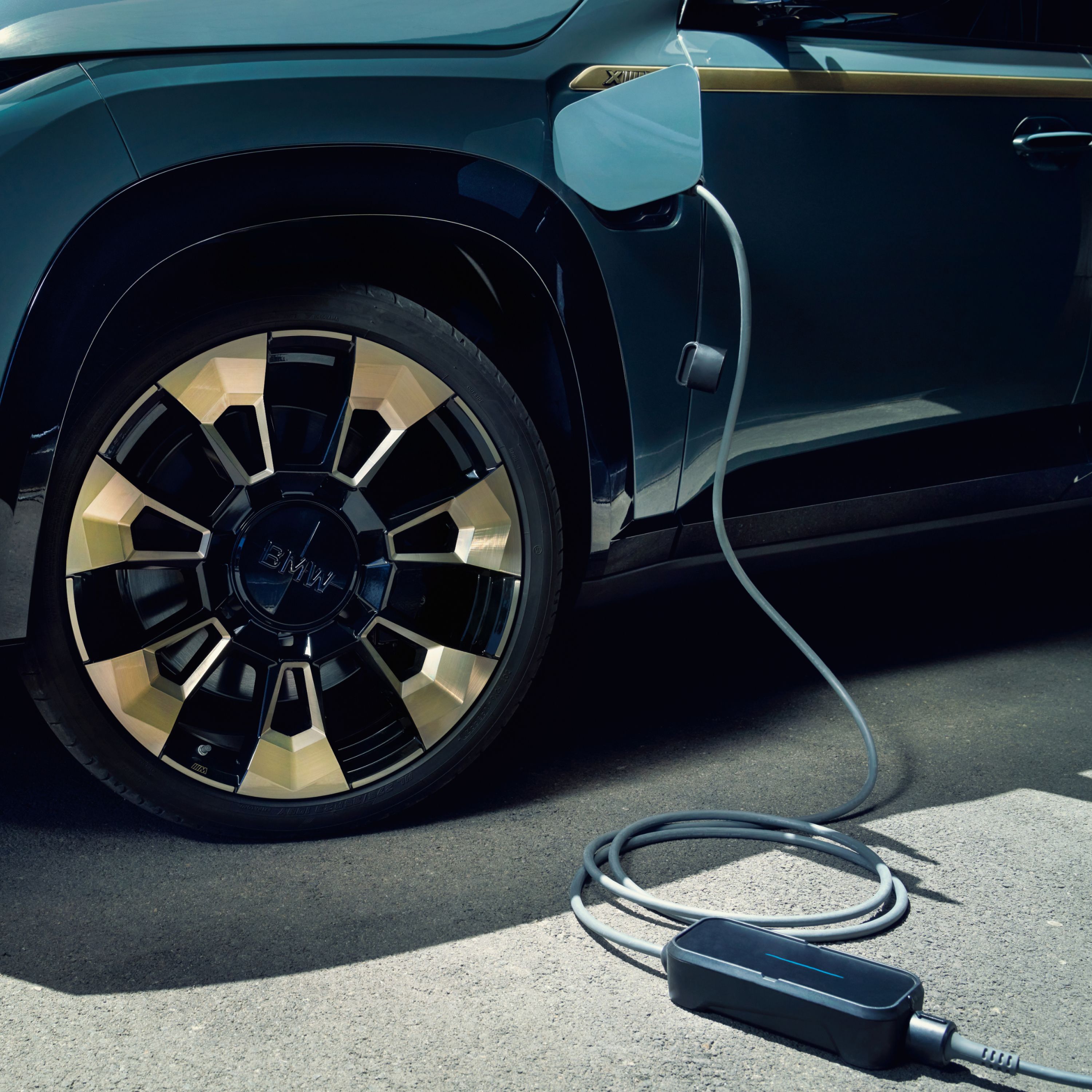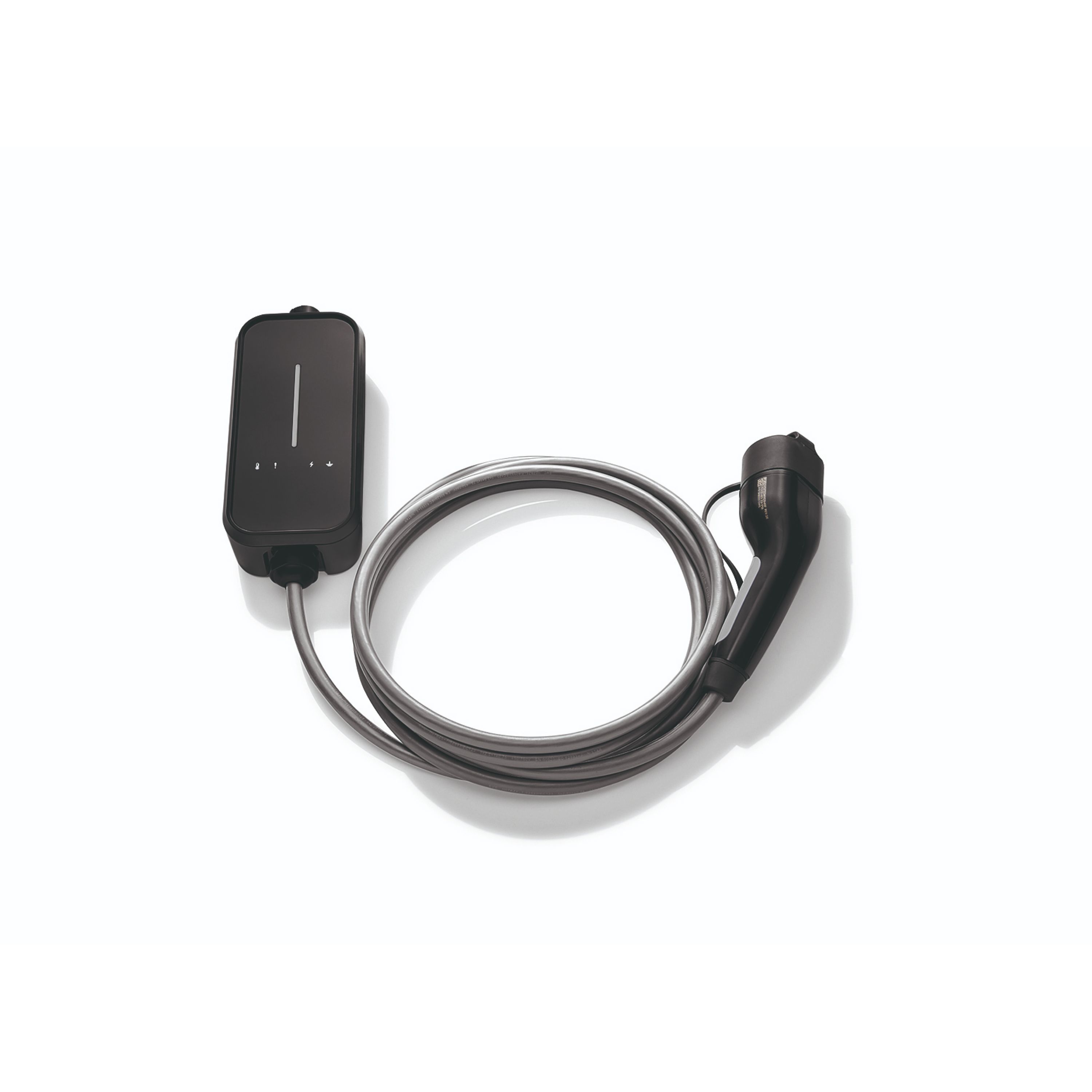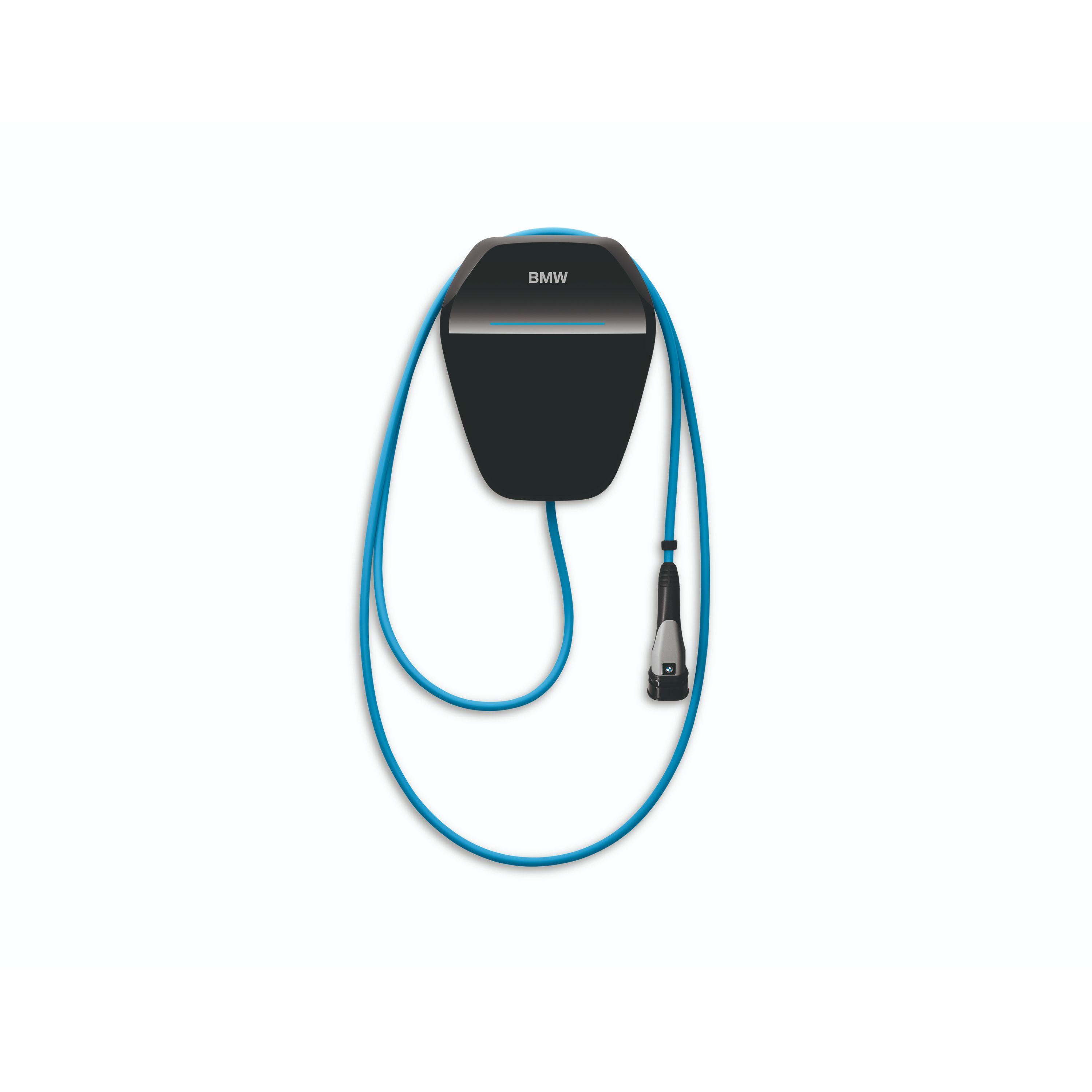BMW iX2 xDrive30: Energy consumption, combined WLTP in kWh/100 km[1]: 17.7–16.3; Electric range, WLTP in km[2]: 417–449
Provided technical data are measured according to the WLTP, not NEDC
THE BENEFITS
OF CHARGING AT HOME.

CHARGED OVERNIGHT.
Start your day with a full charge. Conveniently charge overnight with a charging station at home. As fast and easy as it goes.

CONVENIENTLY CHARGE WITH A BMW WALLBOX PLUS.
Charging doesn't get more convenient than this: your own wallbox at home. It's easy to operate with convenient cable management. And the benefit for you: just plug in the cable and start charging.

CHARGE SAFELY AND RELIABLY.
The BMW Wallbox and Flexible Fast Charger have been specifically designed for charging at home. Ultra-safely.
HOW TO CHARGE YOUR ELECTRIC CAR AT HOME.
BMW X3 30e xDrive: Fuel consumption, combined WLTP in l/100 km[1][3][4]: 1.1 - 0.9; CO2 emissions, combined WLTP in g/km[1][3][4]: 26 - 21; Energy consumption, combined WLTP in kWh/100 km[1][3][4]: 24 - 22.3; Electric range, WLTP in km[1][3][4]: 81 - 90
Provided technical data are measured according to the WLTP, not NEDC
Charge electric cars and plug-in hybrids based on their charging power. With up to 11 kW with the Flexible Fast Charger connected to a high-power socket, i.e. a CEE industrial socket, or with up to 22 kW quickly and safely at a BMW Wallbox. You can always charge your electric car at a domestic socket outlet. We recommend that you use the BMW Wallbox or the Flexible Fast Charger instead.
Find out more about the various home charging options for electric cars and plug-in hybrids.
CHARGING SOLUTIONS FOR YOUR HOME.
INSTALLATION AND OPERATING INSTRUCTIONS.
ALL ABOUT ELECTROMOBILITY.
ELECTRIC CAR PRICE COMPARISON.


BMW i5 eDrive40: Energy consumption, combined WLTP in kWh/100 km[1]: 18.9–15.9; Electric range, WLTP in km[2]: 498 - 582
BMW i4 eDrive40 Gran Coupé: Energy consumption, combined WLTP in kWh/100 km[1]: 18.6 - 15.4; Electric range, WLTP in km[2]: 491 - 600
BMW i7 xDrive60 Sedan: Energy consumption, combined WLTP in kWh/100 km[1]: 22.3–18.5; Electric range, WLTP in km[2]: 515 - 624
BMW i4 M50 xDrive: Energy consumption, combined WLTP in kWh/100 km[1]: 21.9–17.6; Electric range, WLTP in km[2]: 416–520
BMW i5 M60: Energy consumption, combined WLTP in kWh/100 km[1]: 20.6 - 18.2; Electric range, WLTP in km[2]: 455 - 516
BMW i7 M70 xDrive Sedan: Energy consumption, combined WLTP in kWh/100 km[1]: 23.7 - 20.8; Electric range, WLTP in km[2]: 490 - 559
BMW iX2 xDrive30: Energy consumption, combined WLTP in kWh/100 km[1]: 17.7–16.3; Electric range, WLTP in km[2]: 417–449
{model.description}: Energy consumption, combined WLTP in kWh/100 km[1]: {techdata.electricConsumption}; Electric range, WLTP in km[2]: {techdata.electricRangeWltpCombined}
BMW iX1 eDrive20: Energy consumption, combined WLTP in kWh/100 km[1]: 17.2–15.4; Electric range, WLTP in km[2]: 430 - 474
BMW iX3: Energy consumption, combined WLTP in kWh/100 km[1]: 18 - 17.6; Electric range, WLTP in km[2]: 461 - 471
Provided technical data are measured according to the WLTP, not NEDC.
FREQUENTLY ASKED QUESTIONS.
MORE INFORMATION.

TEST DRIVE THE BMW MODEL
OF YOUR CHOICE.
Would you like to experience for yourself how your ideal electric model drives and feels? Simply arrange an online appointment for a test drive when it suits you. Your local BMW partner will contact you with all the information you need.

BMW CUSTOMER SUPPORT.
BMW Customer Support is on hand to help you with all BMW related issues – so that you get answers to all your questions: whether you're an existing BMW driver or are planning to purchase a new BMW.
Consumption and CO2 emissions.
BMW i5 eDrive40: Energy consumption, combined WLTP in kWh/100 km[1]: 18.9–15.9; Electric range, WLTP in km[2]: 498 - 582
BMW i4 eDrive40 Gran Coupé: Energy consumption, combined WLTP in kWh/100 km[1]: 18.6 - 15.4; Electric range, WLTP in km[2]: 491 - 600
BMW i7 xDrive60 Sedan: Energy consumption, combined WLTP in kWh/100 km[1]: 22.3–18.5; Electric range, WLTP in km[2]: 515 - 624
BMW i4 M50 xDrive: Energy consumption, combined WLTP in kWh/100 km[1]: 21.9–17.6; Electric range, WLTP in km[2]: 416–520
BMW i5 M60: Energy consumption, combined WLTP in kWh/100 km[1]: 20.6 - 18.2; Electric range, WLTP in km[2]: 455 - 516
BMW i7 M70 xDrive Sedan: Energy consumption, combined WLTP in kWh/100 km[1]: 23.7 - 20.8; Electric range, WLTP in km[2]: 490 - 559
BMW iX2 xDrive30: Energy consumption, combined WLTP in kWh/100 km[1]): 17.7–16.3; Electric range, WLTP in km[2]: 417–449
{model.description}: Energy consumption, combined WLTP in kWh/100 km[1]: {techdata.electricConsumption}; Electric range, WLTP in km[2]: {techdata.electricRangeWltpCombined}
BMW iX1 eDrive20: Energy consumption, combined WLTP in kWh/100 km[1]: 17.2–15.4; Electric range, WLTP in km[2]: 430 - 474
BMW iX3: Energy consumption, combined WLTP in kWh/100 km[1]: 18 - 17.6; Electric range, WLTP in km[2]: 461 - 471
Provided technical data are measured according to the WLTP, not NEDC.
[1] Official data for fuel consumption, CO2 emissions, power consumption and electric range was determined in accordance with the prescribed measuring procedure and corresponds to European Regulation (EC) 715/2007 in the applicable version. For ranges, data determined as per WLTP takes into account any optional equipment (available on the German market in this case). For vehicles that have been newly type approved since 1 January 2021, only the official data according to WLTP exists. In addition, NEDC values are deleted from the certificates of conformity as of 1 January 2023 by EC regulation 2022/195. For more information about NEDC and WLTP measuring procedures visit www.bmw.com/wltp
Further information about fuel consumption and official model-specific CO2 emissions of new passenger cars can be found in the "Guideline for fuel consumption, CO2 emissions and electric power consumption for new passenger cars", available free of charge at all points of sale, at the Deutsche Automobil Treuhand GmbH (DAT), Hellmuth-Hirth-Str. 1, 73760 Ostfildern-Scharnhausen, Germany, and under https://www.dat.de/co2/.
[2] Range depends on various factors, in particular: individual driving style, route characteristics, outside temperature, heating/air conditioning, pre-conditioning.
[3] Performance data of petrol engines apply to vehicles using RON 98 fuel. Fuel consumption data apply to vehicles using reference fuels in accordance with EU Regulation 715/2007. Unleaded RON 91 and higher with a maximum ethanol content of 10% (E10) may also be used. BMW recommends RON 95 fuel. For high-performance automobiles, BMW recommends RON 98 fuel.
[4] For plug-in hybrid: Weighted, combined (EC AC Charge Weighted)
[5] The charging performance depends on the state of charge, ambient temperature, individual driving profile and use of auxiliary consumers. The ranges shown are based on the WLTP best case. The charging times apply to ambient temperatures of 23 degrees Celsius after a preceding drive and may differ depending on the usage behaviour.













